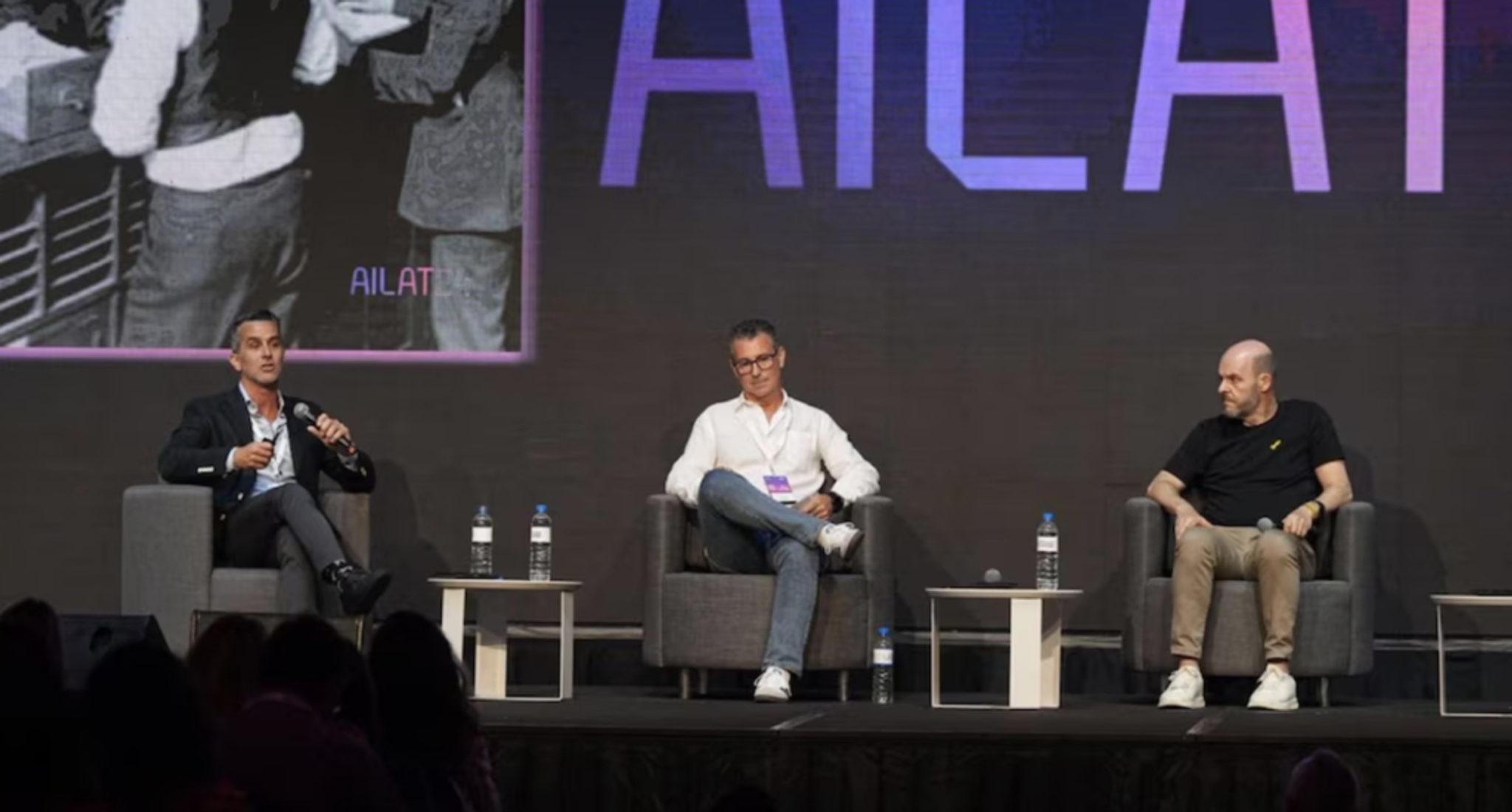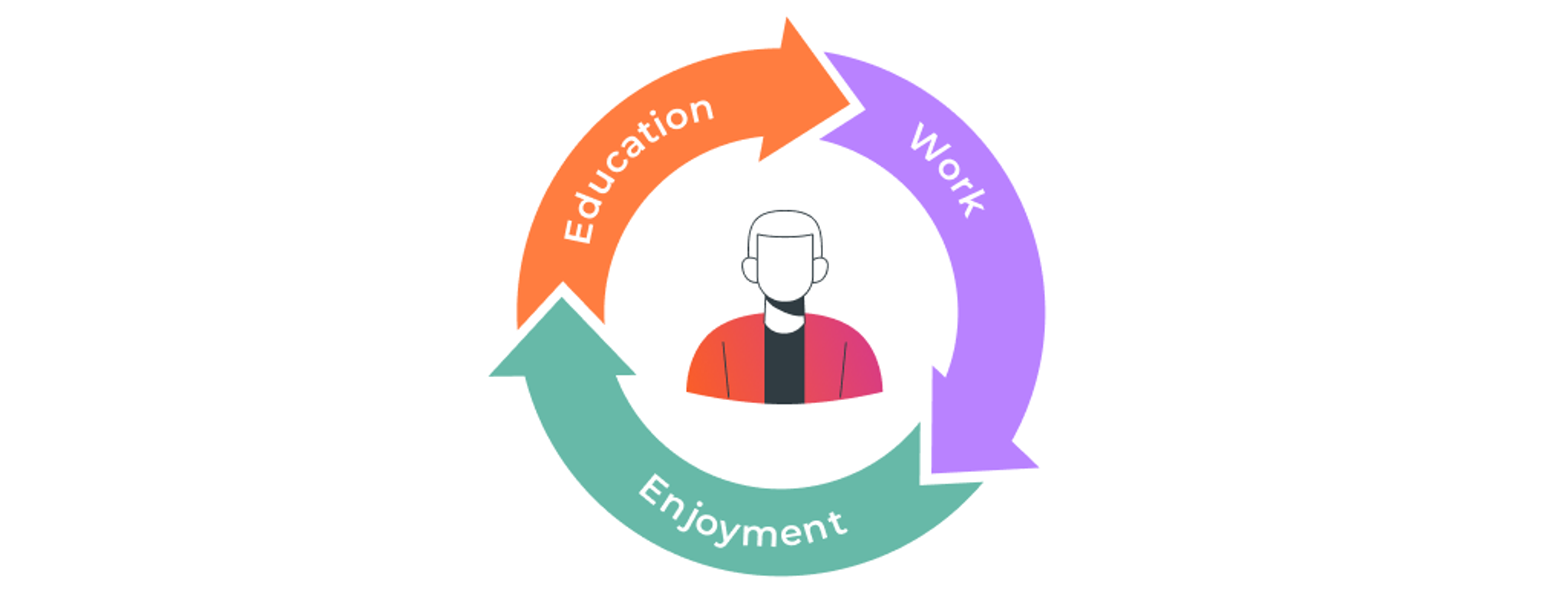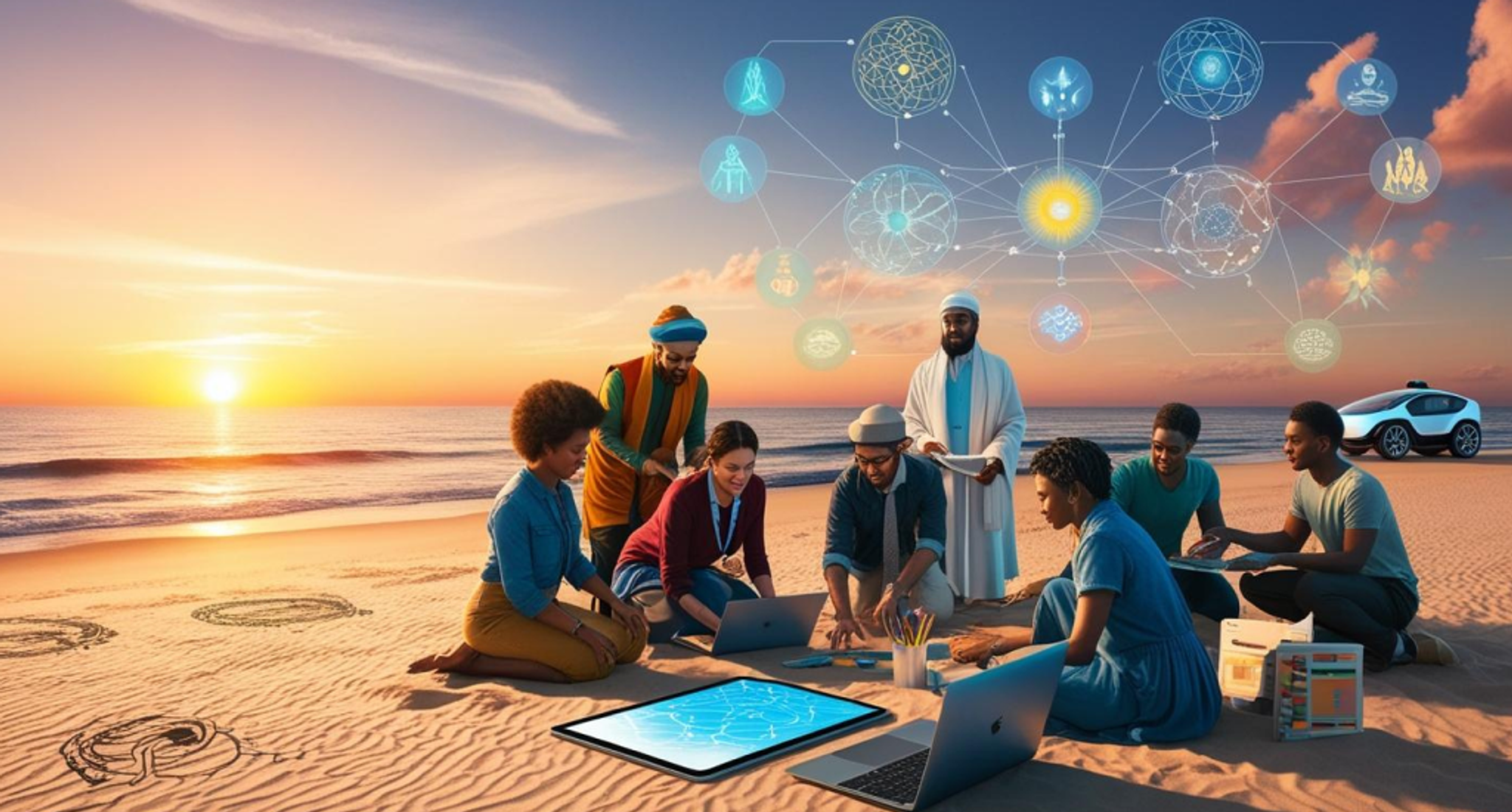
2025 and beyond: shaping the workplaces of the future
Axel Abulafia
Chief Business Officer
As the year comes to an end, it is a good time to pause and reflect on many aspects of our lives. Given how much of our lives we dedicate to work, it is natural to consider its evolution. In 2025, we are on the verge of a work revolution, as technology and human aspirations are reshaping our professional lives.
Last month, I had the pleasure of moderating a discussion panel about the future of work at AI in Latam, the first agnostic AI conference held in Buenos Aires, featuring a distinguished lineup of speakers. During the discussion, we explored how technology is transforming work, its impact on jobs, the balance between in-person and remote work, and the expectations of new generations. It was an enriching experience to exchange ideas with other corporate leaders and envision a future where AI plays a key role in transforming work across all areas of organizations worldwide. In this article, I will share with you some of the key insights and reflections discussed during that session.

What do Gen Zers want? Expectations and aspirations
The expectations of Gen Zers in the workplace are reshaping how organizations approach work environments and policies. However, there is still much to evolve, as many companies today cannot satisfy these needs.
Each generation introduces new aspirations and demands, and in recent decades we have witnessed a transformation in the work-life paradigm. While previous generations approached life as an "education - work - enjoyment" sequence, younger people do not wait until retirement to start enjoying free time and engaging in activities beyond their profession. The younger generations are very conscious of these three aspects:
- They are likely to work more years than their predecessors, as retirement ages rise globally.
- Education does not end with university: many modern jobs require continuous learning to remain competitive
- They want to enjoy work and promote a healthy work-life balance from the beginning

The desire to enjoy work from the first experience shapes the choices of Gen Zers. Some of their biggest concerns in job interviews revolve around ensuring a healthy work-life balance, which is a must for them. The career paradigm is also changing. For the new generations, it will be natural to transform and switch companies and roles throughout their lives. They have grown up with technology, so they clearly understand that the world is in constant motion and evolution. In addition, they seek a sense of purpose in what they do. Younger generations no longer stick to jobs or careers that do not fulfill them or resonate with their values and beliefs.
Flexibility is also a key demand. Gen Zers value hybrid or remote work arrangements and flexible working hours. In my experience teaching 17 and 18-year-olds, I learned that freedom is a priority for them. A while ago, a student surprised me with a question: “In what company can I work three months in one country, then three in another, and so on?”. Their dream of moving seamlessly across borders highlights how much businesses still need to evolve in terms of regulations and systems to make that freedom possible. As Gen Z enters the workforce, organizations will face the challenge of adopting models that enable flexible locations for their employees.
Currently, most companies do not have a positive answer to these demands. However, some forward-thinking organizations understand that we are moving towards a “work from anywhere” model, where people can contribute regardless of their physical location. This shift not only requires businesses to rethink their operational strategies but also presents an opportunity to engage with talent from around the world, fostering a more dynamic and inclusive workforce where geographical boundaries no longer limit potential. Governments should also adapt regulations and tax policies to support this paradigm shift, ensuring that both employers and employees can thrive in this scenario.
The great concern: will AI steal our jobs?
Currently, AI is not designed nor equipped to replace humans, but to augment human capabilities. The power of AI lies in automating repetitive tasks with low added value, freeing up precious time for humans to focus on areas where we are irreplaceable—such as critical thinking, creativity, emotional intelligence, and leadership.
AI is reshaping industries and opening up exciting opportunities. While this transformation may bring out fear of change for many people, there is a powerful tool we can use to face it: a learning mindset. Only by acquiring knowledge, embracing technology, and maintaining a dynamic approach to work, will we be able to remain competitive in the AI transformation era. For experienced professionals, staying up-to-date with new technologies and learning how to leverage AI is crucial. This will differentiate us from those who do not foster this learning mindset. While some jobs may be automated, new specialized roles will emerge that we cannot yet fully envision.
The future is also promising for early-career professionals. Juniors in professional services can focus on developing skills that machines cannot replicate. Young people entering the workforce today can fast-track their learning and position themselves as key players in the evolving workforce by working closely with senior mentors and using AI as a tool rather than a threat.
Getting out of our comfort zones requires a huge dose of courage. We must not only learn new ways of doing things, but also unlearn old habits. Relearning is much more challenging than learning because our ways of acting are ingrained in us, and it requires us to rewire ourselves. However, in this new world, the only constant is change.
On the ethical side, we must be aware that AI has biases and limitations and learn how to work around them. Large Language Models (LLMs) do not think, they provide an illusion of thought. They will only provide answers as good as their training data allows. Because of this, it is important to keep humans in the loop as more and more of our daily activities are delegated to AI agents.

What does the future of work look like?
Technological advances are pervasive. While they often first impact industries that directly benefit from technology, they eventually get into all sectors and our daily lives. We can think of AI as an invention similar to electricity or the mobile phone. It is not about doubting or refusing to acknowledge it, it is about embracing technological advances and learning to use them to our advantage. The future of work will be defined by how well we integrate these technologies into our daily lives.
However, as we adopt innovations, it is essential to maintain a focus on people and their needs. Technology should serve as a tool to enhance human potential, not replace it. This requires a thoughtful and ethical approach to technological adoption, ensuring that advancements align with our values and contribute positively to society.
I imagine a future where innovation and empathy go hand in hand, creating a work environment that is inclusive and equitable. This vision is within reach if we commit to ethical practices and human-centric approaches. Let us challenge ourselves to not only adapt to these changes but to lead them with integrity and purpose.
To conclude, I invite you to reflect on your role in shaping the future of work. How can you leverage technology to enhance human potential in your organization? What steps will you take to ensure that your workplace remains inclusive and equitable? The answers to these questions will define the legacy we leave in our workplaces for future generations.
Related Content

Blog Article
AI Agent Experience: the current UX paradigm is about to change
UX for digital products and services is evolving as AI Agents emerge as new consumers. With advancements in Generative AI, humans increasingly delegate tasks…

Service
Generative AI
We implant AI into your ecosystem in a way that adds real value to your business, designing and implementing a solution specifically tailored for your…

Blog Article
4 main pain points companies face when building high-quality software
In our 20+ years of experience in the software development industry, we have come across various companies from diverse industries that have faced different…